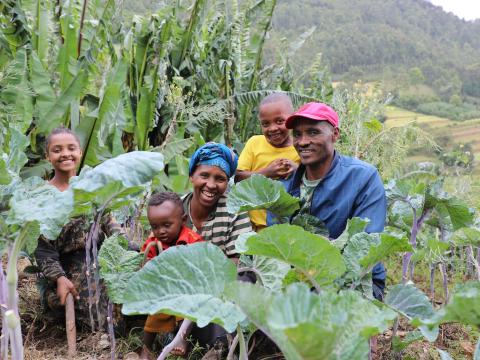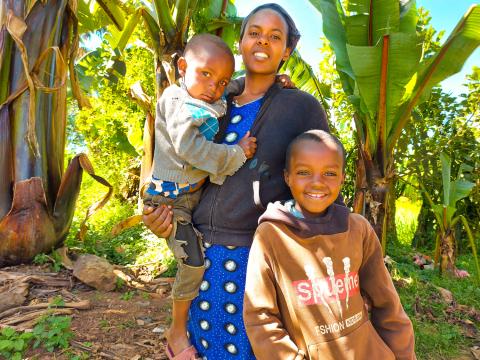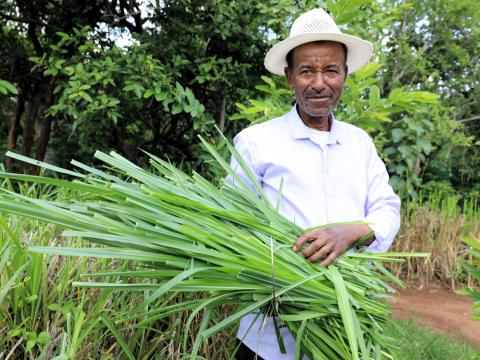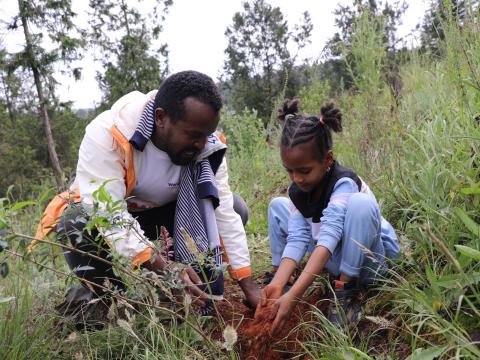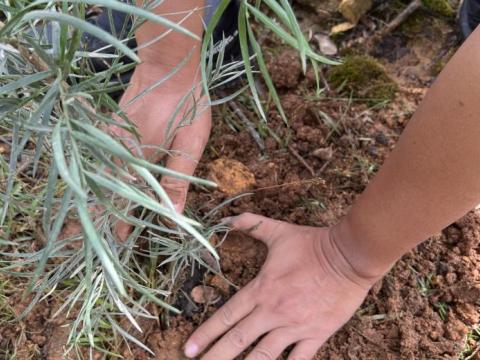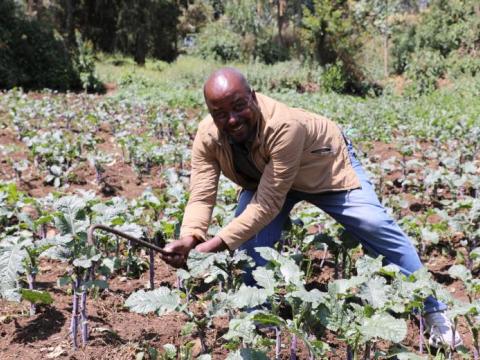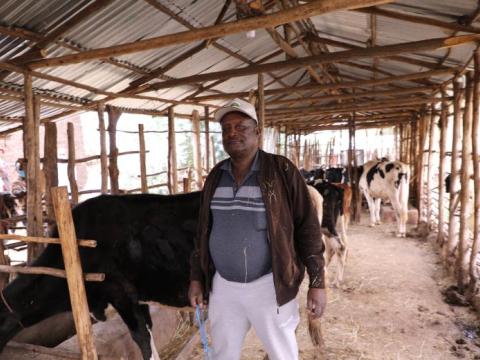Livelihood and Resilience
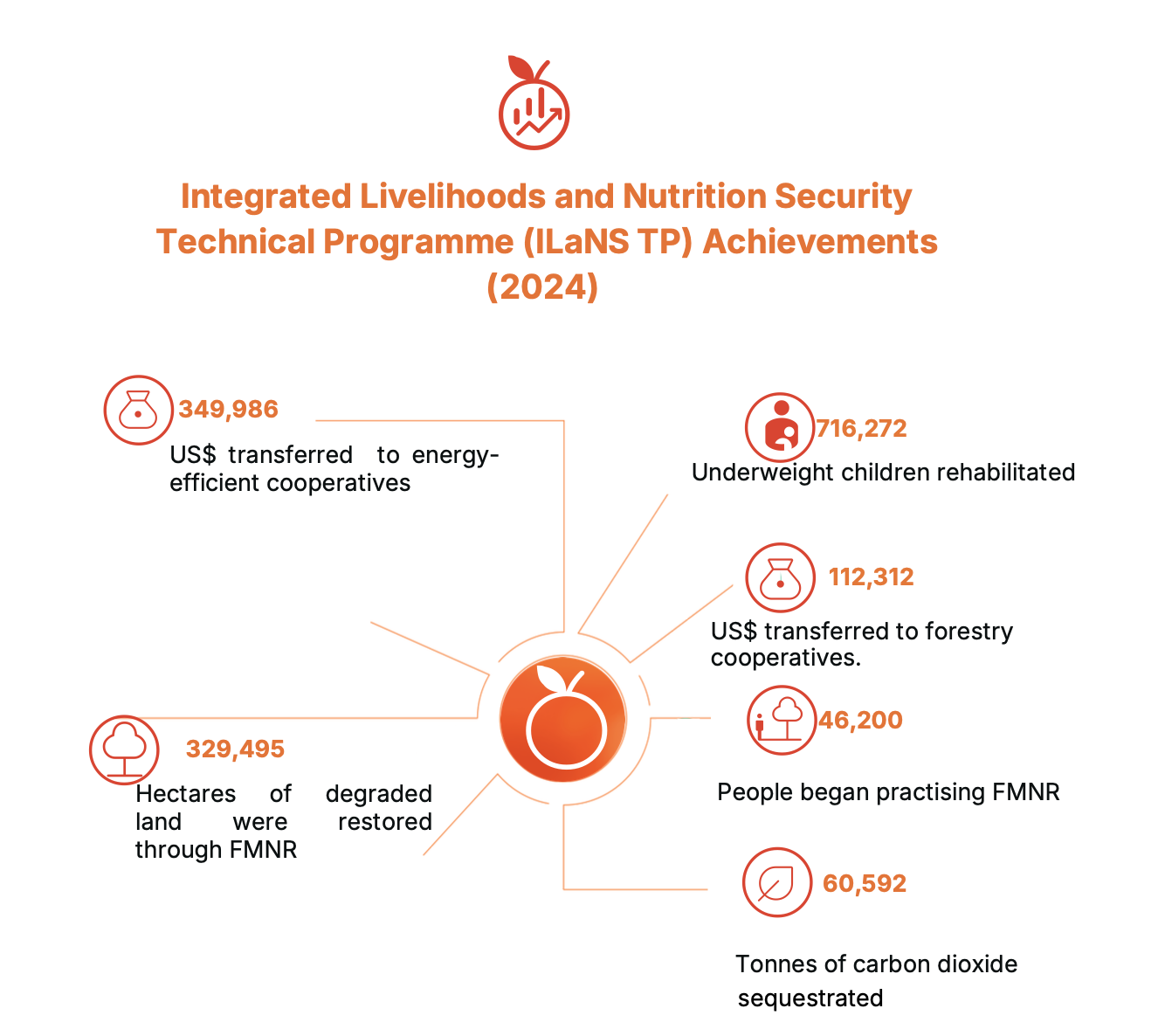
The Integrated Livelihoods and Nutrition Security Technical Programme (ILaNS TP) aims to address community food and nutrition insecurity by combining interdependent programmes such as Resilient Agriculture and Environmental Sustainability, Economic Development, and Integrated Nutrition.
Our Energy Efficient Cook Stoves Projects have improved women's saving practices through cooperatives while also providing safety, protection, fuel, and time savings. In FY 24, our projects transferred US$ 349,986 to 320 energy-efficient cooperatives. Also, in the same fiscal year, our environmental interventions contributed to a reduction of 410,090 tonnes of carbon dioxide (CO2) emissions. The interventions additionally enabled the sequestration of 60,592 tonnes of carbon dioxide and the transfer of 112,312 USD to cooperatives.
Under our Farmer Managed Natural Regeneration (FMNR) programme, we continue to use low-cost land restoration techniques to combat poverty and hunger among low-income farmers by increasing food and timber production and climate resilience. As a result, 329,495 hectares of degraded land were restored, and 46,200 people began practising Farmer Managed Natural Regeneration (FMNR). In the fiscal year, WVE implemented a variety of approaches to rehabilitate underweight children through development grants, emergency response programmes, and nutrition-specific interventions. Some of the approaches used include PD Hearth, Infant and Young Child Feeding (IYCF), Severe Acute Malnutrition (SAM), and/or Moderate Acute Malnutrition (MAM) Management, which includes Supplementary Feeding Programme (SFP), Outpatient Therapeutic Feeding Programme (OTP), Therapeutic Feeding Programme (TFP), and Targeted Supplementary Feeding Programme (TSFP) services. In FY'24, the interventions rehabilitated 716,272 underweight children using among other approaches, including Positive Deviance Hearth.
